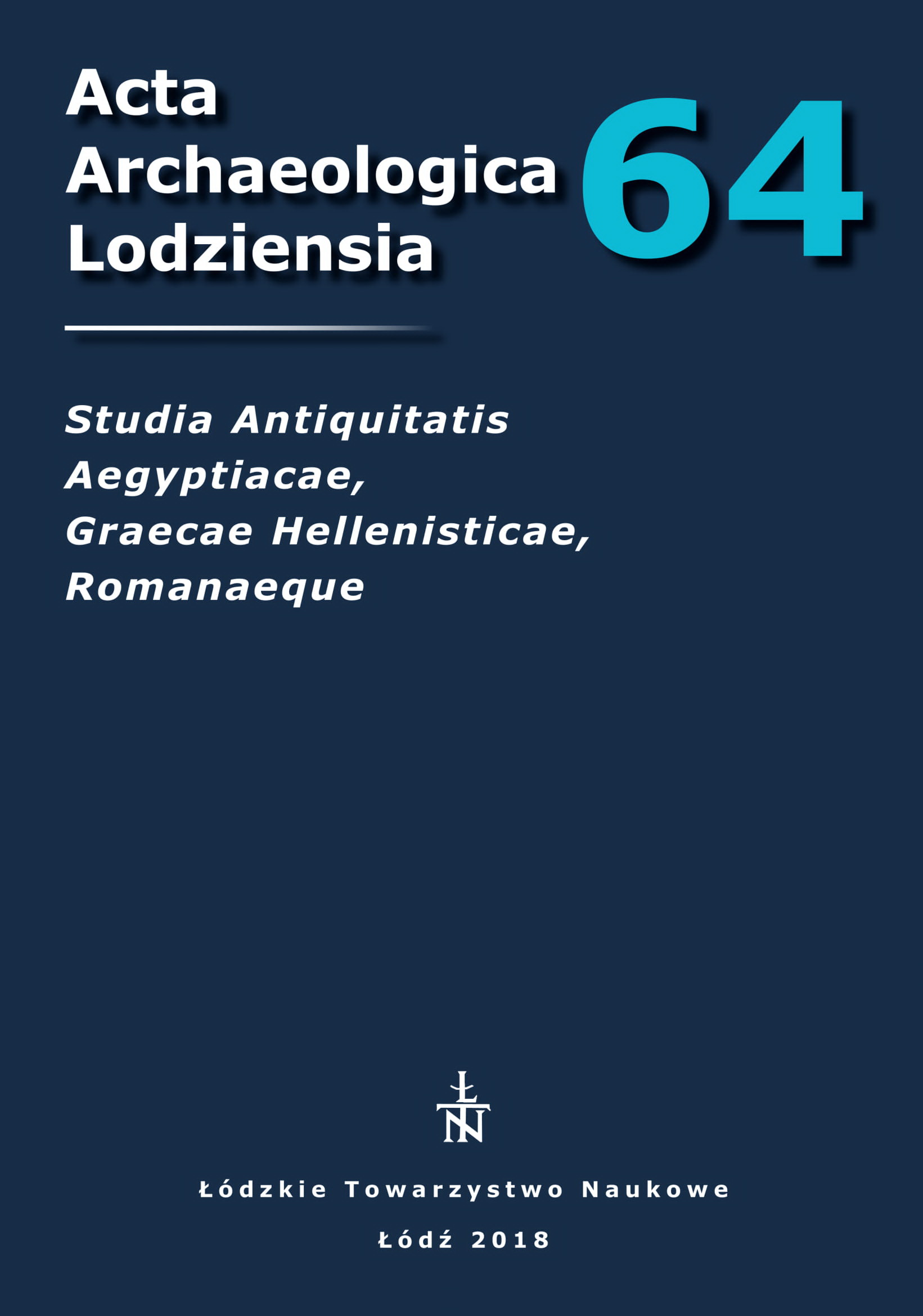Szlaki komunikacyjne i handlowe między Grecją, centralnymi Bałkanami i przedrzymską Dacją (vi-iv w. p.n.e.)
Communication and trade routes between Greece, central Balkans and pre-Roman Dacia (6th-4th c. B.C.)
Keywords:
archaic and classical Greece, Greek colonies, central Balkans, pre-roman Dacia, trade routes, warrior elitesAbstract
The Greeks motivation for supporting long range contacts was mostly a result of the need for precious metals. The established relations were based on the conscious understanding developed among the societies living on the trade routes, and the control maintained over an area made those contacts possible. The colonies created were based on consent given by the local populace and these arrangements could have regulated both the usage of space and the exploitation of local resources. The discoveries made both in the north and central Balkans (as far as Pannonia) as well as Dobruja, Bessarabia, Moldavia and reaching the Transylvanian Plateau hail as far back as to the 6th century BC. What is interesting is that there is a registered increase in objects, contacts and interactions starting in the period between the second half of the 4th and the early 3rd century. The wares from Greek settlements traveled the established trade routes based on mutual relations and had symbolic value for the elite strata of society for which they were meant. These object showcase an important social change in which ostentatious wealth is an essential condition of political power. It seems that the warrior elites were the ones that played a particular role in the time period from the end of the 6th century – the time of the stat of the so called princely graves- to the Hellenistic settlements. The political economy created a new platform of understanding for the elites. The shared ritual, and symbolical experiences, the feasting and the possibility of amassing workforce led to the creation of a status of certain groups inside the functioning redistribution system. From the Greek perspective the Hellenization was as the time a by-product, not a goal in itself, even if the local populace adopted certain ideas, lifestyles, or even particular objects according to its needs.



